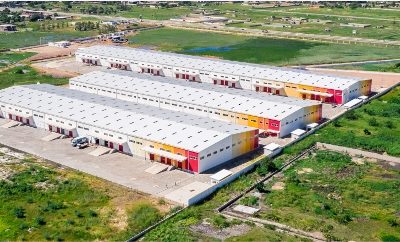The National Information Technology Development Agency (NITDA) and the Small and Medium Scale Enterprises Development Agency of Nigeria (SMEDAN) are to work together to secure Small and Medium Enterprises (SMEs) in the country.
RELATED: NCC partners SMEDAN on digital scheme for SMEs
The two government agencies will work on a common framework to ensure business sustainability for Nigeria’s mass of SMEs seeking mentorship, funding and tech-innovation support.
“We see startups as our babies, while for you anybody trying to start any business you see them as your babies. We have startups solving problems in agric, commerce, education, and logistics and so on,” said NITDA’s Director General, Kashifu Inuwa Abdullahi at a recent meeting in Abuja with the Director General of SMEDAN, Mr. Olawale Fasanya. The meeting held inside NITDA’s corporate headquarters.
According to the NITDA’s boss, supporting the SME through a joint framework would serve as a catalyst for creating wealth and prosperity, adding that, “we have between 60-90 per cent of our businesses under SMEs, but operating informally, how can we formalise them so that even the government can benefit by collecting taxes and have a structure in place to capture the GDP correctly.”
Fasanya agreed with Abdullahi. He said SMEDAN would want to leverage the support for digital enablement that SMEs across the country could benefit from within the framework.
SMEDAN wants SMEs to take advantage of the emerging digital opportunities to enhance business sustainability, he added.
MSMEs constitute Nigeria’s heartbeat
According to the National Bureau of Statistics (NBS), the total number of micro, small, and medium-sized enterprises (MSMEs) as at December, 2017 stood at 41,543,028, with components as follows, viz: micro enterprises – MEs: 41, 469,947 (or 99.8 percent), small and medium enterprises – SMEs: 73,081 (or 0.2 percent).
MSMEs are generally referred to as enterprises with up to 250 employees. micro enterprises: between 1 and 9 employees. small enterprises: between 10 and 49 employees. medium enterprises: between 50 and 249 employees.
According to experts, SMEs account for 48 percent of Nigeria’s GDP, make up 96 percent of businesses and offer about 84 percent of employment in 2022.
SMEs solving a real life problem
Startups that NITDA is dealing with are SMEs who are also trying to solve a real life problem, and because the world is moving to smart manufacturing where you can design anything on your system and print it using 3D printer, the dynamics for to support SMEs must deepen and change too, Abdullahi told the SMEDAN’s boss.
He said: “we have Digital Fabrication Lab in our Center (the National Centre for Artificial Intelligence and Robotics NCAIR) where you can design all these and manufacture them or prototype them and do mass production.”
He also announced that plans are underway to have facilities everywhere as the goal is for every Nigerian to have access to these kinds of facilities.
Already, NITDA has a number of initiatives it has undertaken through collaboration with some big techs. These initiatives include the Learning Management System Online Academy and to which SMEs will be on-boarded so as to benefit from the programs and be part of the Gig economy.
“We are also looking beyond SMEs today; we have what we call IDEs (Innovation Driven Enterprises) which is a process where you start with a mindset that you are solving the immediate problem but the bigger picture is to go global and Information Technology is making it possible for you to reach anywhere in the world,” he said.
Citing a recent research conducted by the Lagos Business School, Abdullahi said SMEs were benefitting from the Gig economy with over two million Nigerians already earning a living through the Gig economy.
To be active in the Gig economy requires training – that capacity to work from anywhere using IT whether as a Bolt driver or a digital marketer.
“IT is pervasive, anywhere you think of today you need IT to enable it. Our lives revolve around technology. This kind of collaboration is what can help us have structure to even protect the Gig economy as well”, Abdullahi added even as he Fasanya of NITDA’s readiness to work with SMEDAN.































